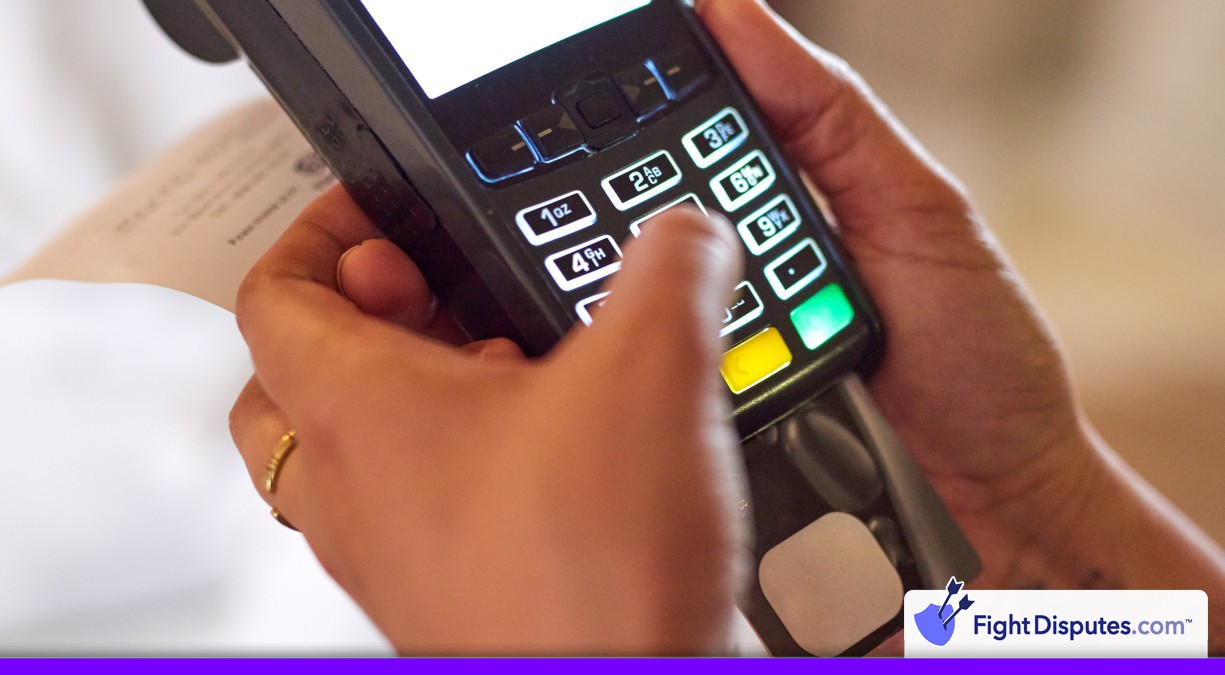What is a Credit Card Issuer?
A credit card issuer is the bank or financial company behind each card you carry, such as Visa, Mastercard, American Express, and Discover. When a customer swipes their card at your store, the issuer is the one who is fronting the money for that purchase in that moment. If the customer later gets upset and files a dispute, the issuer works with the paperwork and sorts through whatever comes after.
This whole setup has a bigger effect on your business than a lot of merchants see. Every issuer has its own way of handling disputes and chargebacks, and the differences can be quite big. Some banks almost automatically back their cardholders at the first hint of a problem, and others actually look into your response before choosing. Chase might work through a dispute very differently from how Capital One or Wells Fargo would, and these variations can have an effect on your chargeback rates and on the time that you have to build your defense.
The biggest players in this space include Chase, Bank of America, Citi, and Capital One, and each has its own internal rulebook for when to approve customer disputes. They also set the window for you to submit evidence and choose which documents they’ll review. Some issuers give you only a few days to put your response together, and others are more generous with their timelines.
Your chargeback rate can swing quite a bit depending on which issuers your customers use most. If most of your sales come from a bank that tends to back its cardholders, then you’ll probably see more disputes coming your way. The frustrating part is that it isn’t always about whether you did anything wrong – sometimes it’s actually about how that particular bank chooses to manage conflicts between merchants and their cardholders.
How It Works
Card issuers have power over your business because they control whether your transactions go through and how disputes get handled. Every time a customer swipes their card at your store, the issuer has just a few seconds to figure out if they should approve or decline that sale.
The approval happens when the payment terminal sends a message through the card network to the issuer. Once that message arrives, the issuer takes a careful look at the customer’s available credit and runs the transaction through some pretty advanced fraud detection filters. These systems scan for unusual patterns in how they spend money – like sudden large purchases that seem completely out of character, transactions that happen in unexpected locations, or habits that just don’t match what the cardholder usually does. When any of these red flags show up – even if it’s just something small that doesn’t match up – the system will decline that transaction right away.
This fraud detection system can be tough for merchants like yourself, and it’s one of the biggest pains in payment processing. Legitimate sales get blocked left and right because the bank’s computer system thinks something doesn’t look quite right. Your customer was probably going to a different state for vacation, or maybe they just wanted to treat themselves to something a bit more expensive than what they usually buy. The bank figures it’s better to be extra careful and block a transaction than to work with actual fraud claims later on – even though you’ll lose out on what should have been a legitimate sale.
Disputes create an even bigger headache because the issuer is working against you in the chargeback process. When customers call their bank to complain about a transaction, the issuer gets to choose if it should treat it as a chargeback. Usually, they’ll side with their cardholder first and ask questions later, so you get hit with a chargeback notification and suddenly have to rush to prove that the transaction was legitimate and authorized.
Each bank also works with these situations very differently. Some banks file chargebacks very fast, and others will try to resolve issues with their customers before they take the next step. Once you’ve been in business for a period, patterns start to show up based on which bank issued each card.
How it Affects Chargeback Prevention
When a customer disputes a charge, the credit card company is one of the biggest factors in how that dispute turns out, and each issuer deals with these situations differently.
Some issuers make it very easy for cardholders to file chargebacks. American Express is known for siding with customers in dispute situations. But other issuers ask for quite a bit more proof before they’ll approve a chargeback request. Your defense strategy needs to change depending on which company actually issued the card.
Response deadlines also can vary quite a bit from one issuer to another. Some give you just 5 days to send your reply, and others give you 10 days or more. Missing any of these cutoffs means that you’ll lose the dispute even when you had evidence on your side – it’s helpful to try to stay on top of which issuers give you less time and to manage those replies first.
Different issuers also want different types of proof. One issuer could be satisfied with basic shipment tracking info. But another one wants a signed delivery confirmation and full correspondence records. When a particular issuer asks for more complete paperwork, you can start collecting that material from the minute that each transaction happens.
Using issuer data to stop chargebacks works quite a bit better than fighting them after they happen. Some issuers generate more fraud-related disputes, and adding extra verification steps just for the cards from those banks makes sense. You can give priority customer service to the cardholders whose issuers sign off on disputes right away as well. Small adjustments that are based on issuer behavior can cut down on your chargeback rates.
Example Scenarios
Card issuers all work with fraud detection in their own way. That creates a lot of issues for merchants who don’t see it coming. A merchant who processes a payment from a Chase customer will get hit with very different fraud alerts than a shopper who pays with a card from their local credit union. Chase tends to flag anything that looks even slightly unusual because they processes millions of transactions each day. That same local credit union will usually just pick up the phone and call their cardholder directly instead of automatically blocking the transaction. It’s pretty frustrating – you could lose a completely legitimate sale with one card issuer while the other would have approved it without any issue.
Co-branded cards make the whole situation even messier for merchants. Say a customer disputes a charge on their airline rewards card that was actually issued by Bank of America. Now the airline has its own dispute policies that can be very different from what Bank of America normally does. Instead of a single form, you can wind up with paperwork that goes to multiple parties and takes much longer for any resolution.
The timing differences between card issuers can be tough. Some issuers move so fast with disputes that merchants barely get a chance to respond. A customer sends you an email about a problem on Monday morning, and by Wednesday afternoon, their card issuer has already started a chargeback against you. Other issuers give their cardholders a fair window to work out issues directly with the merchant first. That works much better for everyone involved.
American Express runs operations very differently from other card businesses because it controls the network and issues its own cards directly. Their dispute process follows its own set of timelines and policies that can be tough to follow, especially when you’re dealing with the other issuers at the same time. You need to know which card issuer you’re working with so you can make the right response at the right time.
Requirements and Timeframes
Credit card disputes work differently depending on which bank issued the card, and each issuer has its own policies. Chase might give you a full 7 days to respond to a chargeback, but Bank of America wants your documents in within just 5 days. These timing differences matter quite a bit because missing any deadline means that you’ll automatically lose the entire dispute.
The big card networks like Visa and Mastercard set up the basic timeline framework. But then each issuer stacks its own laws on top of that. Some banks ask for evidence within only 48 hours for high-risk transactions, and others are more generous and will extend your deadline over holidays or weekends. The best strategy is to have figured out which issuer you’re dealing with before the deadline begins.
Recent consumer protection laws have made the whole situation even harder for merchants to manage. New legislation forces issuers to give cardholders more time to dispute charges and squeezes merchants into tighter windows for defending themselves. What worked under last year’s setup won’t be enough anymore.
Documentation laws can also change quite a bit from one issuer to the next. American Express usually wants full delivery confirmation for any physical goods you’ve shipped, but Discover will accept just the basic tracking numbers. Some issuers have started asking for proof of customer conversations or signed service agreements for dispute cases. Send them the wrong paperwork, and they won’t even bother looking at your case.
The consequences hit pretty hard if you miss these deadlines. You lose the entire disputed amount, and you also get hit with extra penalty fees on top of that. Some issuers will flag your merchant account after multiple missed replies – that can mean higher processing rates or account termination later.
Frequently Asked Questions
Who decides if a transaction becomes a chargeback?
When we talk about credit card issuers, we're talking about the bank or financial institution that hands you your credit card and manages your account. The issuer is basically the company behind the scenes that makes all the important decisions about your credit - if you'll get approved for a card in the first place, what your limit will be, and how much you can charge each month.
Every time you use your card to buy something (be it at a grocery store, gas station, or online), the issuer is the one who pays the merchant right away. They cover the initial cost so you can walk away with your goods right away. Then, at the end of each billing cycle, you get your monthly statement, and it's time to pay the issuer back for everything they covered on your behalf.
Your issuer works as a financial middleman between cardholders and every business where they shop. They take care of all the tough behind-the-scenes processing that makes purchases go through immediately and easily. Big banks like Chase and Bank of America issue millions of cards every year. But plenty of other financial firms like Capital One and Discover are also in this business.
Your issuer chooses the interest rate cardholders will pay on any balance they carry from month to month. They also control what rewards you can earn for their spending and set all the fees you might pay for late payments or for going over the limit. Different issuers have very different policies across these areas.
This whole setup matters if you're a merchant that accepts credit cards. When a customer sees something on their statement that looks wrong and decides to dispute it, they'll contact their card company first to start the process. At that point, the card company has to choose if it wants to file an official chargeback against you or if it would instead try to work out the issues quietly without all the formal paperwork. Different card companies manage this in their own ways - some file a chargeback almost immediately, and others give you a chance to work issues out with the customer first.
Card issuers take care of disputes a little differently, and each one has developed its own way that works for them. Some banks have built automated systems that can sort through the most common chargeback claims and approve or deny them immediately without a person ever looking at them. Other issuers like to have their staff members look over each dispute before making the final call on how to respond.
Can merchants contact credit card issuers directly about disputes?
Not exactly. Most merchants can't simply pick up the phone and call your credit card company directly when a chargeback happens - that's not how the system works, and the reason is pretty simple. Your credit card issuer only has a direct business relationship with you as the cardholder. They don't have any direct connection with that electronics store where you bought your laptop or the restaurant that accidentally charged you twice for dinner.
When a merchant wants to fight a chargeback, they have to go through their own bank or payment processor first. There's no way around it. That bank or processor then takes the merchant's evidence and sends it through the right card network channels. After going through all the right steps, it eventually makes its way to your card issuer for review.
The entire process has to move through these official channels because that's just how the big card networks designed the system to work. Your neighborhood coffee shop can't exactly send an email to Chase or Bank of America to explain their side of what happened. They need to work with their own bank to submit the right documents at the right time.
American Express works a little bit differently from the other big credit card businesses out there. Since Amex acts as the card issuer and also runs its own payment network at the same time, merchants actually get a few extra options when they need to contact them about disputes or problems.
That said, Amex still has its own procedures and protocols that everyone needs to follow.
Do different issuers have different chargeback rates?
Yes. Credit card businesses can vary quite a bit with chargebacks, and some of them are much friendlier to merchants than others. Some banks will side with their cardholders almost every time, and others actually take the time to review whatever evidence you send them. It's mostly about which bank issued the card in the first place.
Premium credit cards cause far more disputes than the basic plain cards. When a person pays 100s of dollars in annual fees, they expect their bank to support them. These cardholders won't hesitate to dispute a charge if something feels even slightly off to them. The banks know this behavior well, and they'll usually approve disputes just to keep their best customers happy.
The bank's fraud detection systems also help in how disputes are handled. Some issuers have fairly advanced technology that catches problems before they turn into issues. Others are still running on the older systems that miss warning signs, and this can directly affect how they work with disputes when customers call in to complain about the charges.
Running a business means that you'll track which banks approve the most chargebacks against you. You might start seeing some patterns after enough disputes over time. Maybe one issuer always sides with the customer, no matter what evidence you send them. Another bank might actually read through your response carefully and make a fair call based on the facts. This pattern recognition becomes helpful once merchants start changing how they process transactions from different card types. Some even change their refund policies based on which bank issued the card.
How do co-branded cards affect the chargeback process?
Card issuers get the final word on whether a dispute turns into a chargeback. Strong documentation and customer service matter quite a bit here because banks and credit card providers are set to protect their cardholders above all else. They will side with the customer almost every time if your evidence is weak or missing.
Another point worth remembering is that every card issuer has its own way of handling disputes, and these differences can have a big effect on your business. Some issuers are more selective about the evidence that you have to send in, and others give you more time to make your reply to disputes. When you know the exact issuers that your customers usually use, it's much easier to write better replies, and you can even stop some chargebacks from happening in the first place.
Another big challenge that can affect merchants comes from how the payment world is changing. Co-branded credit cards have made what used to be simple far more complex. When banks team up with other businesses to launch these partnership cards, it can add a few new layers that nobody in the industry had to worry about before. Any merchant who wants to protect their business needs to watch closely how all these changes might affect their chargeback and dispute processes later.
The relationships between all these different players can get pretty tangled, and what issuers and acquirers actually do makes all the difference in the payment process. Issuers work for the cardholder, and they're the ones that start chargeback disputes in the first place. Acquirers work for merchants and help them fight back against those chargebacks. After a customer complains about a charge on their statement, the issuer looks at the whole situation and decides if it's worth filing a chargeback. But acquirers stay busy and help merchants get together all the evidence that they need to dispute those claims. During a dispute, the two sides have to work through the card networks to work everything out and reach a resolution.
Your acquirer can become your main partner when issuers file chargebacks against you, and understanding who does what matters during the entire chargeback process.
 Call (844) NO-DISPUTES
Call (844) NO-DISPUTES



